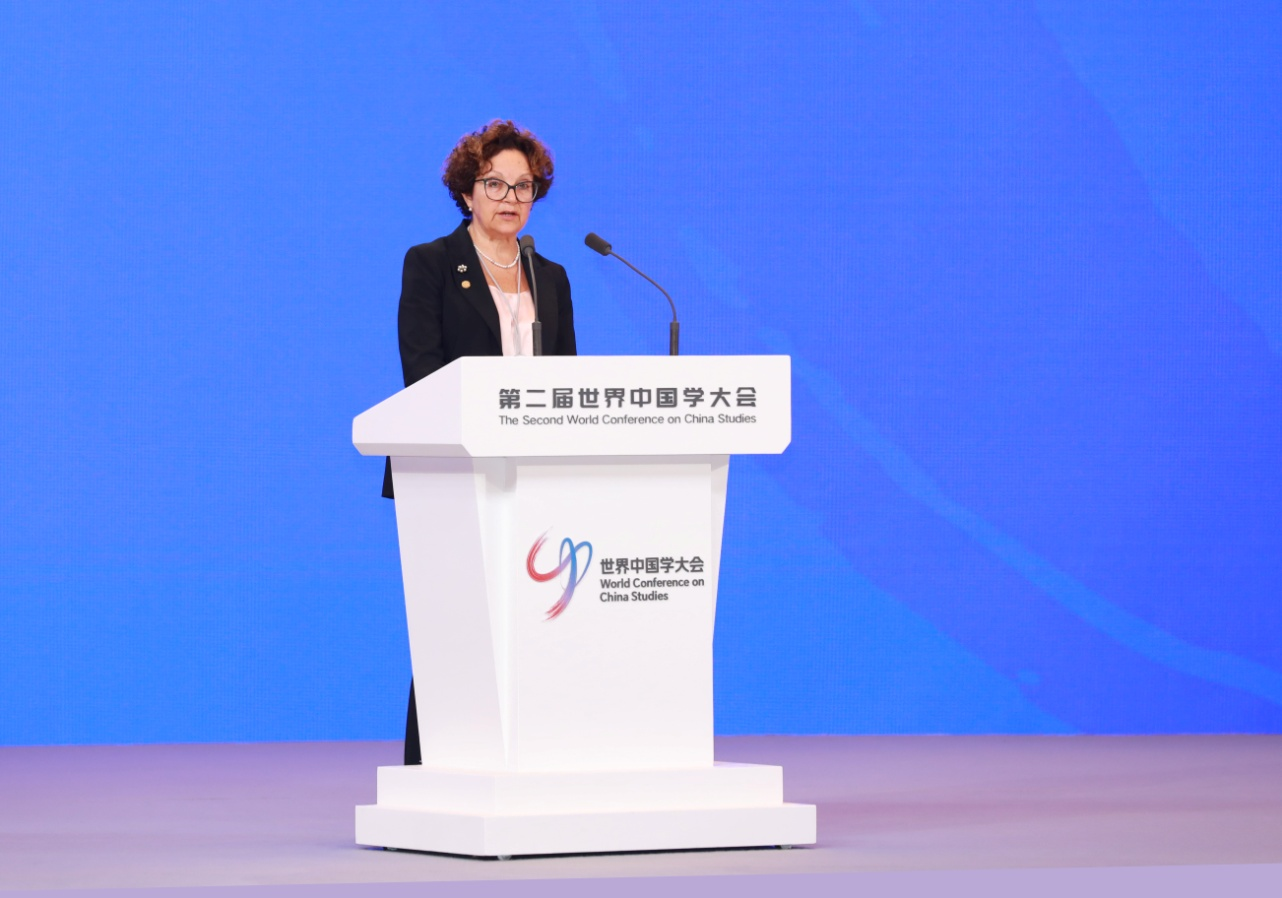Confucianism in Italy:Chinese Ethical Thought & Cultural Meaning
Tiziana Lippiello :The Italian Reception of Confucianism:The transmission of Chinese Ethical thought and its Cultural Significance

Tiziana Lippiello, Rector of Ca’ Foscari University of Venice (Italy) make a speech at the Main Forum of The 2nd World Conference. In her speech, she explored the value and significance of the "Four Books" to Jesuit missionaries, highlighting their role as a cultural bridge connecting the two major classical traditions of China and the West. She examined the convergence and mutual learning between Confucianism and Western thought, as well as how Jesuits conveyed these resonances to readers in Europe.
She said , There are two reasons why Jesuits attach importance to, study, and disseminate the "Four Books": Firstly, the "Four Books" were carefully selected and compiled by Confucius and Mencius, embodying the essence of ancient Chinese classics; secondly, the writing style of the "Four Books" is concise and clear, and the content is unambiguous and easy to understand, thus it has been widely circulated in China and has become a concentrated carrier of the wisdom of ancient sages. Confucius and Mencius selected the most practical and beneficial teachings from the "Five Classics" from these books.
Matteo Ricci became aware of the relevance of the Four Books in the curriculurum studiorum of the Chinese, he often mentioned them as the Tetrabiblio, and declared that the missionaries, once they had learned the Four Books and one of the Five Classics, according to the practice of the Chinese literati, were ready to start their literary composition.
She pointed out, there has been a great debate in the West on the nature of Confucianism, was it a religion or was it a philosophy? The debate arose in particular with the Neo Song scholarship, with the Cheng brothers and Zhu Xi and later in Europe with the Jesuits’ interpretation of the texts identified with Confucianism.